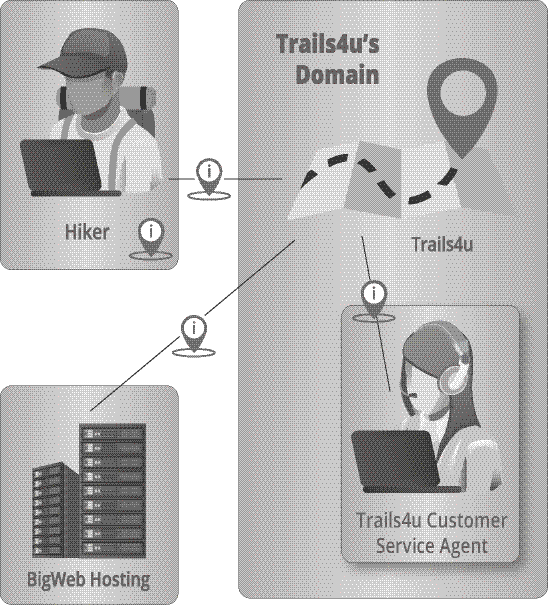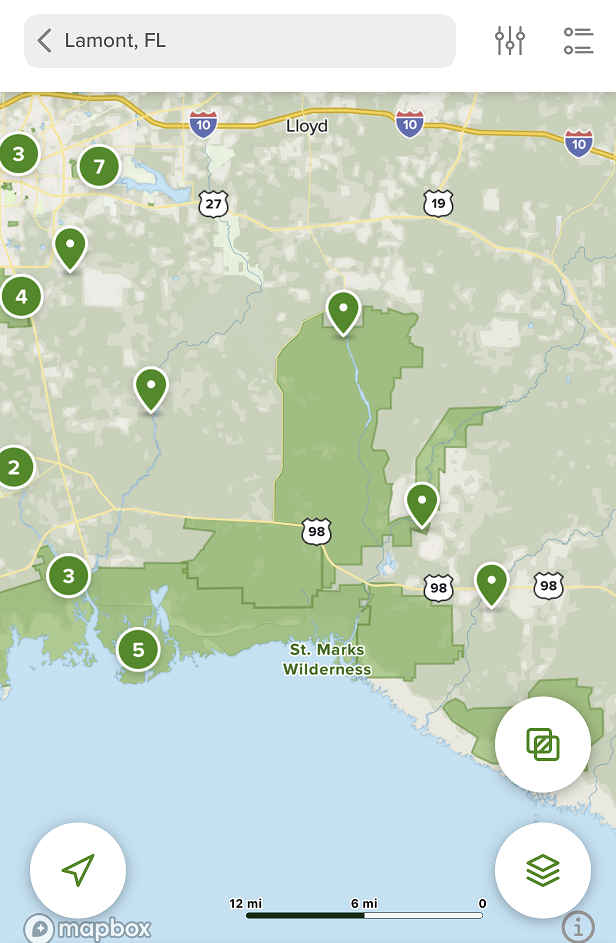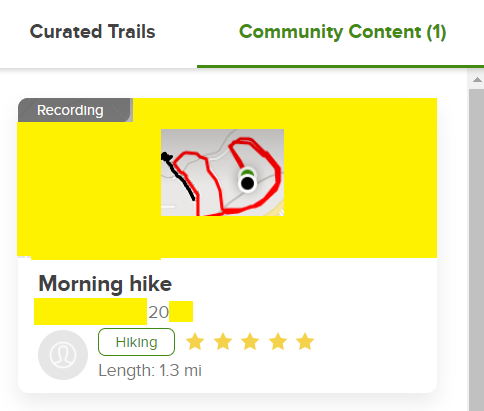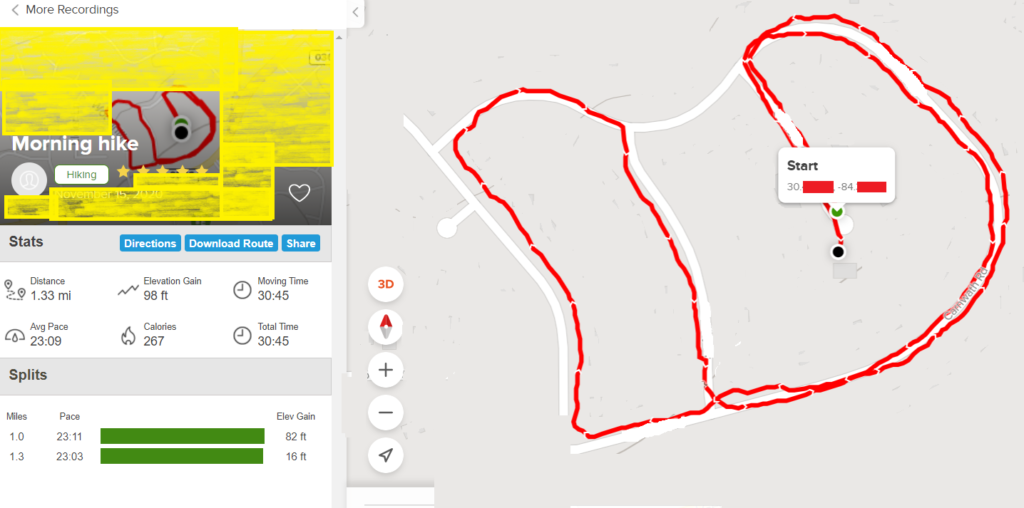For those that don’t know, I’m an avid hiker and biker. In fact, I’m currently undertaking a challenge that I created for myself to do 90 different trails in 100 days. Currently, I’m 2/3rds through that challenge with ~30 days to go. One of the keys tools I use for finding and following trails is a mobile App called AllTrails.

I’ve used it for years but now I’m using it daily. While I’ve known that trail apps have potential privacy problems (I even included building a privacy friendly trail app as an example in my book, see illustration), my recent use has pinpointed how problematic.

In the App on a phone, when you pull up to explore the area looking for trails you’re presented the pinpoints of a bunch of curated trails, as shown at left. You can click on a trail and get a description, trail map, reviews, popular activities and features. There is a slight problem in that reviews, I think, are public by default, but it appears that when your profile is private or individual recordings are private, your reviews aren’t shown.
In my search for trails, though, I’ve found lots of unlabeled trails. In other words, trails at parks, greenways and forests that haven’t been curated and cataloged. You can submit new trails for consideration, and I’ve done that with a few. I’ve also recorded via the app some hikes and walks that aren’t official trails, like when I dropped a rental truck off and walked home 5 miles because I needed to get a hike in that day or when my car was getting an oil change and I hiked to a park to kill time. Because of the challenge, I wanted to document these “hikes” to record my mileage. Now even though my recordings are private and my profile is private, uploading these recordings seemed even less problematic because they weren’t linked to an official trail and thus unfindable by the public. At least I assumed so. [Yes, privacy professionals, I know, AllTrails could be monetizing me by selling geolocation information to advertisers. I assume so, at least, with any app I use.]
It turns out that my statement about recordings unlinked to trails is not quite accurate. In the App it appears to be true, but on the AllTrails website, you can look at curated trails OR community content.

This community content contains all sorts of hikes people take, including official but uncurated trails, trips to visit grandmother in Ohio (I saw on where someone recorded their road trip) or walking around their neighborhood. I’ve yellowed out the map above to reduce the chance of someone finding this particular hiker’s location based on the road topography. Clicking on the recording in the list of community content leads to the details (shown below). As you can see this hiker left their house (black point) and walked around their neighborhood and turned off the recording as they approached their house at the end of the cul-de-sac (green point). Mousing over the endpoints yields the latitude and longitude to 5 decimal places, which is accurate to within a meter. I’ve attempted to obscure as much information as possible, like street names, exact lat/long and other houses, but I’m sure someone with enough resources could identify this from the unique street outline. However, I’m not going to make it easy.

You may be thinking, well this isn’t bad because I don’t know who lives at some random house (i.e. I don’t know their name, though it might be part of the public records on home ownership). It other words its an attribute disclosure about this person (their walk details) but not an identity disclosure. I won’t debate the problems of attribute disclosures in this blog but that’s not what’s happening here. Clicking the profile icon will take you to their profile. Note, this person did at least not upload a picture of themselves so the profile icon (under the words Morning Hike on the left) is generic. Unfortunately, they DID include their full name (changed to a gender neutral generic name below).

On my recent hiking challenge, I generally listen to podcasts, mostly privacy related. One I’ve become very fond of is Michael Bazzell’s “Privacy, Security and OSINT” podcast. It’s fairly frequent (I’m listening to podcasts daily now) and provides both tips on how to protect your privacy and OSINT (Open Source Intelligence) techniques, to which people need to be familiar with in order to protect their privacy.
Of course, being a privacy by design specialist, my take is people shouldn’t have to go to extremes to protect their privacy. The onus is on organizations to build better products and services. AllTrails, I like your app, really, I do. But it needs so many improvements from a privacy perspective. So many, in fact, I’d be happy to offer you some free consulting. Just contact me rjc at enterprivacy.com. I don’t mean to single AllTrails out. I’m sure this is a problem with many or most of the trail apps. AllTrails just happens to be the one I use.
For others who don’t want their organizations to be on the cover of the NY Times , sign up for some privacy by design training or contact me about a consulting engagement. Become a privacy hero with your customers.
